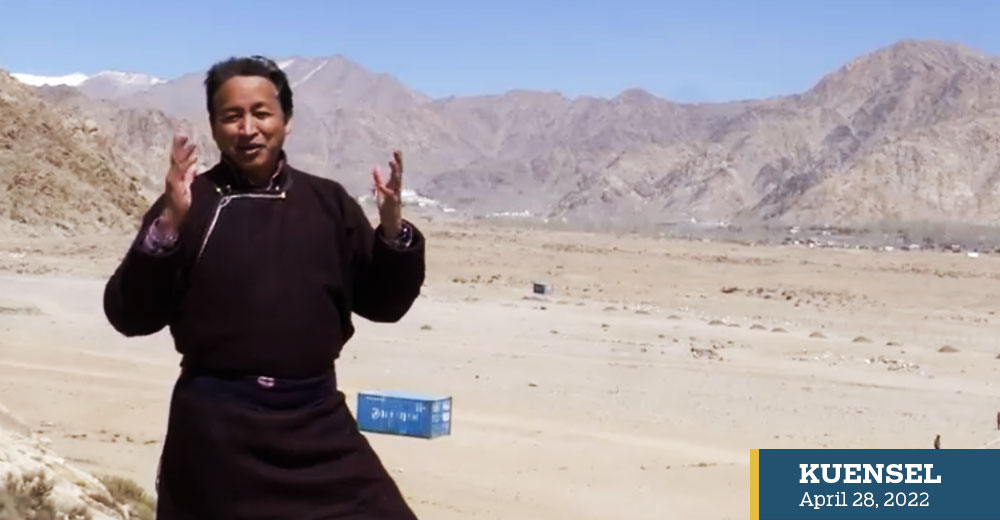Innovator Sonam Wangchuk speaks at Bhutan Echoes
Chhimi Dema
Mountain countries like Bhutan should engage youth in finding solutions to the challenges facing the local residents, according to Sonam Wangchuk, innovator and educationist from Ladakh in India.
Sonam Wangchuk, an engineer, reformist and educator, is known for the famous character ‘Phunsukh Wangdu’ from a popular Bollywood movie, 3 Idiots, which was loosely based on his life. He was invited virtually to speak on his innovations and solutions in remote Ladakh at the Bhutan Echoes on April 23.
Drawing similarities among Bhutan, Nepal, Sikkim and Ladakh, India, for being in the Himalayan mountain regions, Sonam Wangchuk said that imported innovations and technologies would not solve the problems facing the mountain regions.
He has used mountains as cell towers to provide internet services to the Himalayan Institute of Alternatives (HIAL) in Ladakh. “Perhaps for the first time in world history, we were able to set up an internet facility using mountains as towers,” he said.
Sonam Wangchuk said that HIAL tries to find solutions to the mountain region’s problems and helps students to be entrepreneurs. HIAL offers studies in eco-responsible architecture, energy studies and high-altitude desert ecology, among others.
He stressed on the need to transform the education system to make it more relevant for people living in the mountain regions.
“We need to be innovative to find solutions to our own problems. The solutions will not come from New Delhi or New York,” he said.
Sonam Wangchuk also talked about the Students’ Educational and Cultural Movement of Ladakh (SECMOL), which was founded in 1988 by a group of young Ladakhis to reform the education system of Ladakh.
The alternative school, he said, had come up with solutions to many of the problems facing the Ladakh region. The solutions included using locally available materials like mud to build schools.
“At this school, we let young people find solutions to their problems and become entrepreneurs rather than study irrelevant materials.”
Many of the students today own start-ups that produce jam and fruit pulps, and value-added products from yak milk.
The school is run by students who have a parliament to oversee that it functions in line with its vision. The student body makes plans, sets goals, executes them and gives responsibilities to other students.
He also cited the example of using the science of thermodynamics, conduction, and radiation in the construction of the school to suit the climate of Ladakh.


